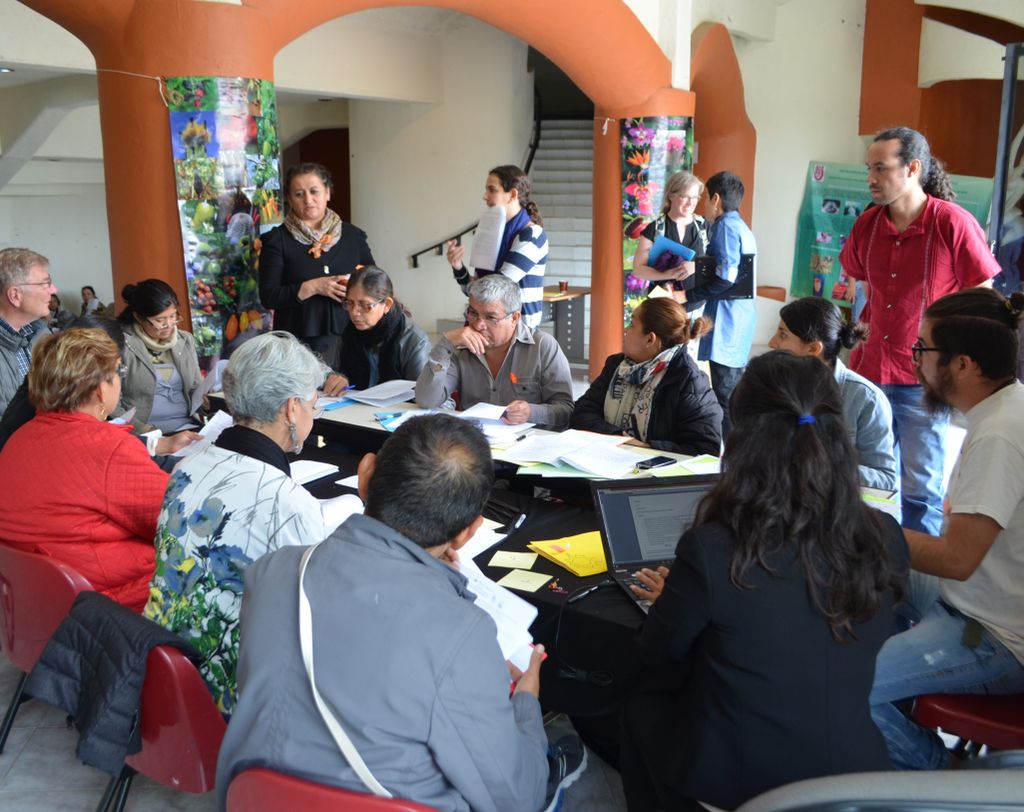Code of Conduct on Access and Benefit-Sharing

-
Status of project
Completed -
Region
Global -
Country
Mexico -
Workstream
Sharing Knowledge and Resources -
Topic
Policy and Advocacy -
Type
Case Study
Code of Conduct on Access and Benefit-Sharing
Exerpted from: Asociación Mexicana de Jardines Botánicos, 2016, “Código de conducta para el acceso y uso de la biodiversidad vegetal en los que participen los jardines botánicos de México y Compendio de Buenas prácticas de acceso y uso de la biodiversidad vegetal”.
Project: Completed 2019
Partners: Asociación Mexicana de Jardines Botánicos
You can find the full document (in Spanish) here.
(Informal translation – Kate Davis and Beatriz Maruri)
Declaratory clauses
- The AMJB is a civil association that brings together the Mexican botanic gardens, establishes academic relations and promotes real and effective communication between them, to achieve the conservation of Mexican plant diversity and its associated traditional knowledge.
- The AMJB also promotes environmental education and the dissemination of information about the flora, all within the legal environmental framework in force in Mexico.The AMJB recognises that the participation of landowners is necessary, whether owners and/or title holders of the property where the species are found, to protect them throughout the national territory, to strengthen the system of ex situ and in situ conservation set out in Goal 2 of the Mexican Strategy for Plant Conservation 2012-2030.
- The Botanic Gardens of Mexico promote the study, conservation and utilisation of plant diversity of the country, both ex situ and in situ, including all species of plants at risk, always in cooperation with the people and communities where their habitats are found.
- The AMJB honours and complies with the international principles that derive from the Declaration of Human Rights, as well as those established by the Convention on Biological Diversity regarding the fair and equitable sharing of the benefits from biodiversity, as basic elements of ethics.
- The Botanic Gardens create and maintain documented botanical collections under a curatorial framework, which serve as reservoirs of regional germplasm and as the basis for the creation of in situ conservation instruments, which maintain functioning ecosystems and are essential for the stability and evolutionary conservation of species.
Principles
- The AMJB and all of its members will promote their activities as a source of local development in accordance with the use, customs, traditions and systems of the communities that possess plant resources
- Any academic research conducted in the vicinity of indigenous peoples and local communities will respect the right to protect cultural heritage and traditional knowledge associated with the biological resources of the community, via a framework of respect for the local context.
- The Botanic Gardens will respect the Mexican legislation in place and the local norms related to activities of scientific collection, propagation, access to genetic resources as well as to traditional knowledge related to the flora, complying with the principle of Prior Informed Consent (CFPI) according to the applicable law on the part of the holders and owners of the resource.
- The precautionary principle will be used in order to prevent and anticipate negative biological or cultural effects that derive from collections or misappropriation of biological resources that could endanger any plant population.
- Prior to the development of the project, those who have authority over the possession of plant resources and access to the area will be identified and offered a clear explanation of the execution of collection activities or access to associated traditional knowledge. Such activities will be supported by the project leaders (the garden and the institution to which it is assigned) and will have the necessary legal permits, in order to obtain Prior Informed Consent (CFPI) for access to their biological resources and associated traditional knowledge. The same procedure will be applied for the development of activities in the interior of Natural Protected Areas (ANP). Sufficient information on the project will be provided to all those with competence to grant Prior Informed Consent.
- The information provided by the community will be safeguarded, taking into account aspects of equity and justice and considering their tangible and intangible cultural values. However, the community will also be informed regarding the need for cooperation, in order to maintain the balance of ecosystems and for sustainable development.
- When necessary, agreements will be developed in an explicit manner, setting out the Mutually Agreed Terms (CMA) in order to protect biological resources and associated traditional knowledge, promoting transparency and compliance with fair and equitable benefit sharing.
- The benefits derived from an academic investigation will be established based on previous agreements established by the parties.
- The Botanic Gardens of Mexico will consider the communities in which they conduct their research within their educational programmes, in a manner that shares the results generated and promotes awareness of the value and conservation of plant diversity, all within a framework of respect for inhabitants and their knowledge.
- The exchange of material in ex situ conditions for its reintroduction into the natural environment will be conducted in accordance with the legislation in force.